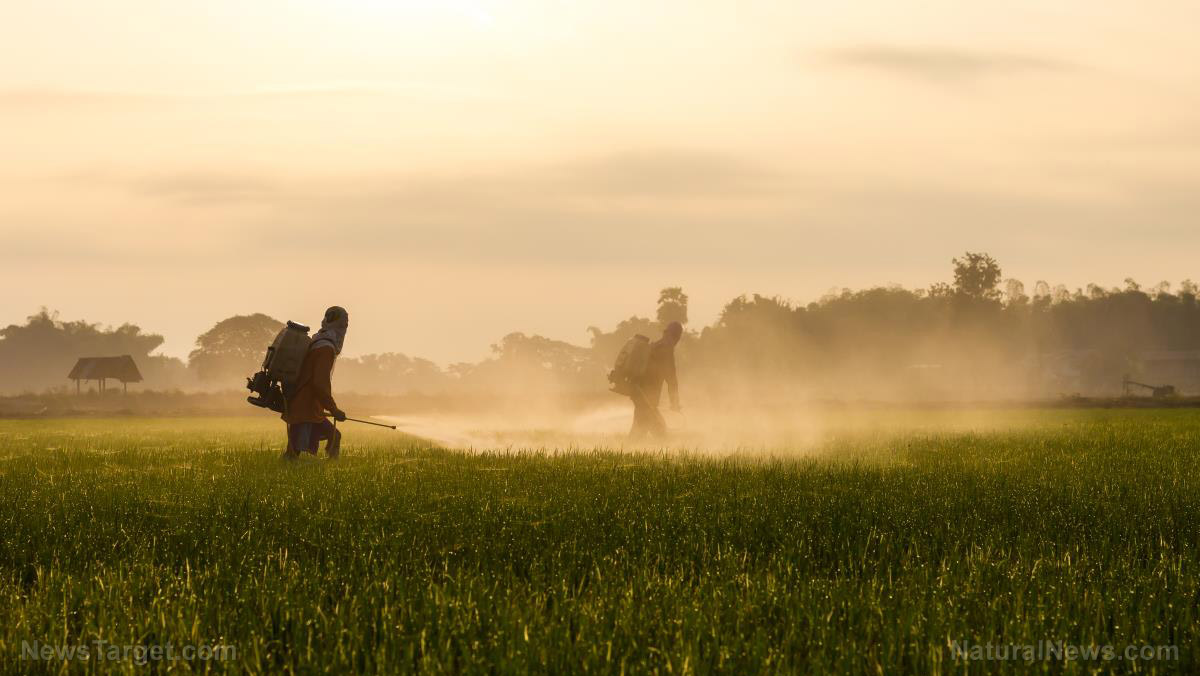Tenneessee restricts use of Monsanto herbicide dicamba as damage to food crops spreads
03/13/2019 / By Rhonda Johansson

Monsanto remains unfazed with Tennessee’s recently imposed restrictions against its dicamba pesticides. The state officially became the fourth in the nation to ban or limit the use of dicamba after evidence was presented suggesting that drifting from the herbicide compromised surrounding crops not genetically modified to withstand it. Tennessee followed Illinois, Kansas, and Arkansas in suing the global giant who, along with BASF and DuPont, heavily recommends the use of dicamba to address the problem of weed growth.
The problem, farmers say, is that the dicamba formulations only work for crops that have been designed for it. Wind and weather conditions affect the pesticide, which cause dicamba to spread over to neighboring farms and damage other crops. Weed specialists from Missouri have stated that off-target movement from dicamba has damaged at least 203,045 acres of soybeans, along with 73 acres of watermelons, 18 acres of cantaloupes, 24 acres of certified organic vegetables, five acres of vineyards, and two acres of pumpkins. (Related: Mass-poisoning: Monsanto’s toxic new pesticide can go airborne.)
Most of these crops displayed discernible changes in leaf size and shape, but experts in the state have warned that some chemical changes caused by dicamba may not be easily seen.
In response to these allegations, Monsanto’s Executive Vice President and Chief Technology Officer, Robb Fraley, said on a phone press conference in Illinois that these claims are baseless. Fraley insists that these difficulties are less caused by the company’s products but in improper handling by farmers. “Most agronomists will tell you that uniform, corner-to-corner leaf cupping across an entire field is not consistent with drift; it’s symptomatic of another problem. Are those uniform problems with cupping because of a problem with a contaminated sprayer unit? Are they due to improper spraying of older dicamba formulations that have a propensity to vaporize?” he asked.
Fraley said that improper handling by farmers has created a snowball effect. He argues that this, along with using older formulations of dicamba pesticides, accounts for at least 25 percent of the supposed damaged crops.
“Many (farmers and consultants) noted that sales of [older dicamba formulations] spiked this year, despite the fact that corn and wheat acres were down,” he pointed out. This, he says is significant, since older dicamba products are used for corn and wheat crops at this time of the year. “The extent of off-label product use was surprising to me and very troubling, and it’s also illegal.”
Moreover, Fraley talks about these concerns as typical headaches seen by all new technologies. He recalled a similar problem when RoundUp Ready crops were first introduced nearly two decades ago. Monsanto has since claimed that RoundUp does not have any negative effects to crops (or human health), despite data suggesting otherwise. Still, Monsanto, along with BASF and DuPont, have agreed to look into adding more safety precautions to their products, including a more detailed directions list on how to apply the pesticide.
Tennessee officials, however, are not taking any risks and have imposed strict provisions for dicamba usage in all farms and fields. This includes spraying pesticides at a specific time and eliminating the use of all older dicamba formulations.
Late last year, Monsanto introduced its newest dicamba formulation which the company claims has low volatility, meaning that it has been formulated to have less drift while still maintaining its potency.
See Dicamba.news for more coverage of dicamba herbicide.
Sources include:
Tagged Under:


















